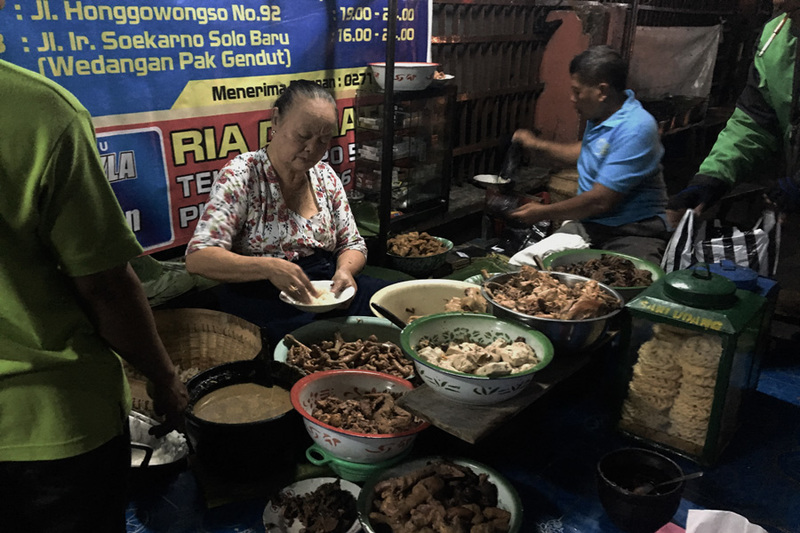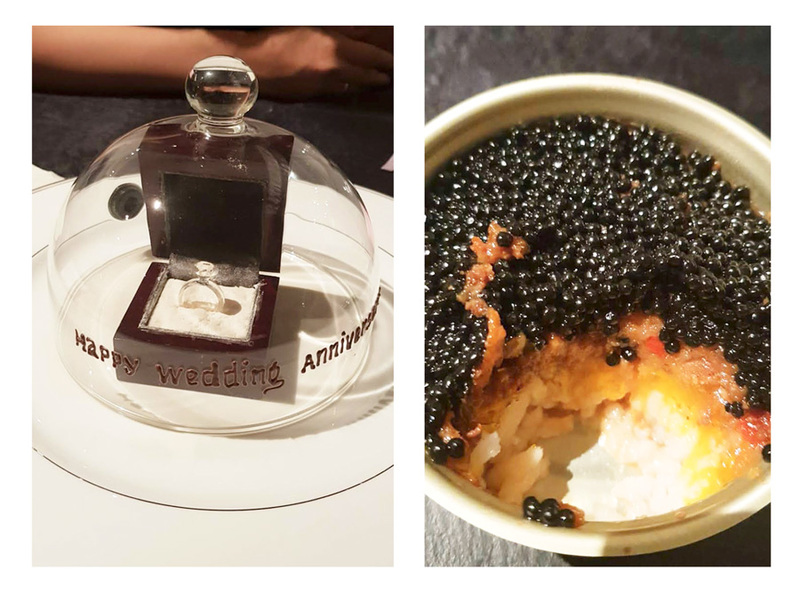There are many ways to relate food with love and passion. For me, it's the way I express my love to my husband, and this is how my journey in the culinary world started.

As a typical middle-class Indonesian – someone who had very little knowledge of the kitchen, and never really had done that much cooking – I taught myself to cook for my husband because I wanted to be a good wife. It brought me deep satisfaction when I saw my skinny hubby, and other people around me, happily enjoying the food I cooked for them. Straightaway, cooking became my passion.
Although, long before I had the idea to be a cook, my interest in cooking had already begun. When I was 11 years old and still living in Solo, my grandmother taught me how to hold a knife (despite my dad’s instruction not to go into the kitchen). After that, when the helpers were not around, I would quietly sneak into the kitchen and make delicious nasi goreng – the only nasi goreng that my older brother would eat.
When I moved back to Jakarta, far away from my grandma, I did not do any more cooking but my interest in food grew and grew. The fact is – I love to eat!
Our love of food is highly influenced by our initial experiences. If you ask me which is the best culinary city in Indonesia, for me, the answer would definitely be Solo. Whenever I go back there, the food reminds me of the love I have for my family , from tahu kupat (fried tofu with rice cake, served with sweet spicy sauce) to serabi notosuman, which is still my children’s favourite (rice flour pancakes made with coconut milk and sugar, cooked over traditional charcoal fires).
The other thing that made me fall in love with Solonese food is how uncommercial – and unique – some of the vendors are. Each food stall, serving different types of dishes, has its own opening time. The famous Gudeg Mergoyudan (traditional young jackfruits and chicken cooked in sweet coconut sauce) opens its stall at 2 AM in the morning – and despite this slightly… unusual… opening time, it's not too long before the stall runs out. And still, the owners don't want to increase the amount of food they sell.

Perhaps the owners are being very canny: by keeping supply low, they are maintaining high demand. But I think, equally, it has just as much to do with a very typical Solonese passion for keeping traditions alive. It's this integrity that means that the quality of food still remains consistent, and maintains exactly the same taste over decades. Family recipes and family businesses have been passed on through generations, despite inflation and shortages, booms and busts. This is what I mean when people cook with love and their heart (and which is such a contrast to so many restaurants in the big Durian, which seem to start out great and then, after a year, start cutting corners and letting standards slip).
I think it's fair to say that in older, more simpler times, people ate to live. The trend is changing now – more and more people (for example, my husband – and I think quite possibly, my 4-year-old boy) live to eat.
You can see this in the way the culinary industry has been growing massively in Surabaya, Bandung, Medan, and especially in Jakarta and Bali. The food industry is ready now to try new things, new flavours. The joy and pleasure of eating is no longer just physical, but psychological.
It is no wonder then that in Jakarta, we now restaurants that offer diners a culinary dining experience to satisfy all five senses, such as Namaaz dining. It calls itself a “fun”dining, molecular gastronomy restaurant, has limited seats and restricted serving times, with customers needing to eat by reservation. And even more shockingly, to pay in advance!
The unique selling point is not just the dish and presentation but also how you eat it – jam that tastes like gudeg, or rice with beef and sweet soya sauce that looks like caviar in a bowl. Some friends of mine who celebrated their wedding anniversary there said to me the waiter even gave them a diamond ring – unfortunately, one made from sugar rather than the real thing.

Despite all these rules and regulation, Namaaz has been operating since 2013 – there is a real demand in Jakarta from those who don't just want a meal, but also an all-in sensory experience.
Meanwhile, in blingy Hong Kong, things have been taken up a notch. In his 3-star Michelin restaurant, Bo Innovation, chef Alvin Leung invented a dish called “Sex on the Beach”. Apparently, this is an edible condom on a mushroom beach. While it might not be the first thing you'd want to order for a dinner with the boss, or even a first (or any) date, presumably there is a market out there for the dish. After all, people are always trying to find new ways of linking passion and food.
Of course, as soon as you start to talk about food and passion, people think about aphrodisiacs – such as oysters and chocolates (although, obviously, not together). Chocolate doesn't just taste good, but also boosts our levels of serotonin, the feel-good hormone. Whereas oysters are said to have an amino acid that increases levels of testosterone and zinc. The former increases desire, the latter is lost through ejaculation. Casanova is said to have eaten 50 oysters a day for breakfast. Which, if nothing else, suggests he had a little too much time on his hands.
Based on my very intensive and scientific research, and frequent consultations with Dr Google, healthier aphrodisiac options might include watermelon, asparagus or pomegranate. Or of course, you can always go for the preferred option in China – tiger penis. If you're finding it difficult to get hold of an amenable tiger in the local pasar, you can always try Soto Betawi's goat penis. My husband – who might be just a little bit too cynical – says that the most reliable aphrodisiac is “booze".
But for me, our love of food can never be separated from the back-stories of our life. I grew to love food, as my family and I drove around Solo at 2 AM, the car windows wide open, the air sweet and still and heavy outside, looking for Gudeg Mergoyudan. For me, my love of food came from chowing down on sweet chicken, in the flickering light, swapping stories – safe and comfortable – with my family, surrounded by the hushed, expectant queues of fellow chicken lovers. And maybe, when I cook for my friends and family, what I'm doing is recreating that same sense of love and family.
It is true, I am passionate about food – not just the food of Solo, but of Barcelona, and Rome, Istanbul and even Edinburgh! But more than this, I'm passionate about showing my love of family and friends through food. Love what you eat, eat what you love! Live your life with passion, and be passionate about your life… and happy Valentine’s Day!







